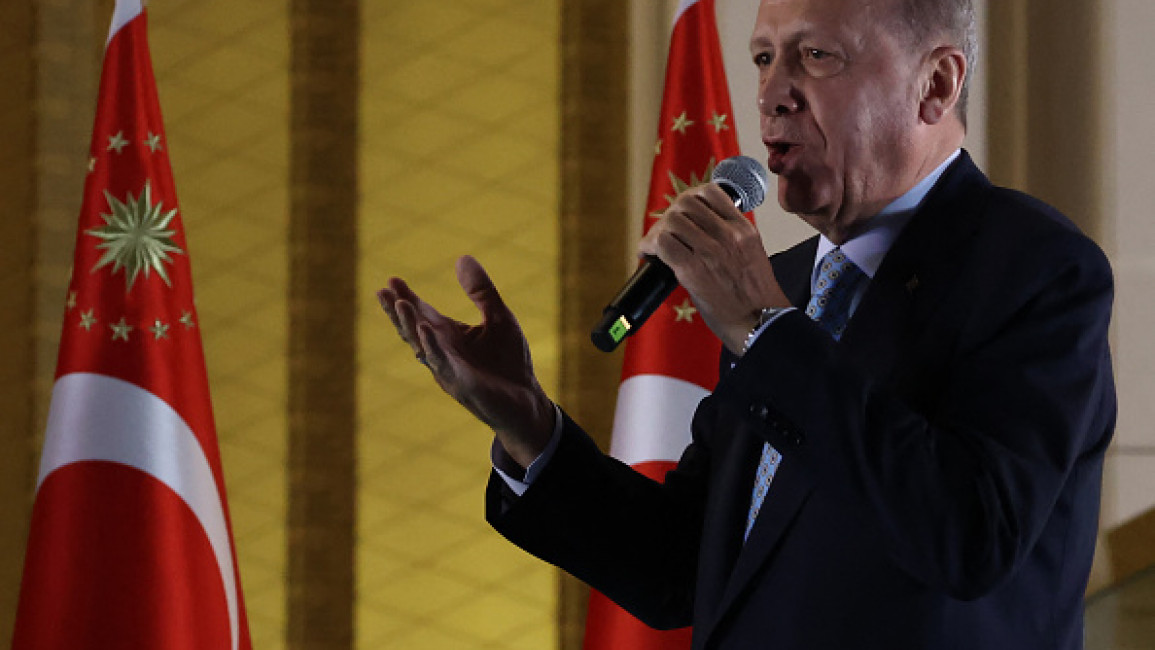What does Erdogan's re-election mean for Syrian refugees and normalisation with Assad?
Since the outbreak of Syria’s devastating civil war, at least 3.5 million Syrian refugees have fled to Turkey. In recent years, and during the recent presidential election in particular, their presence and the hostility and bigotry that have resulted as become a major political tool.
During the election, eventually won by the incumbent Recep Tayyip Erdogan in Sunday’s runoff, the main opposition candidate Kemal Kilicdaroglu vowed to send every single refugee back to Syria within two years. While Erdogan never directly appealed to xenophobia during the campaign, it is notable that both in the run up to the election and during it, he focused on the question of how best to return refugees.
Erdogan pointed to his government’s record of already having "voluntarily" returned 560,000 refugees, while pledging to return and resettle 1 million more.
The question of the return of refugees is intertwined with a likely normalisation of ties between Turkey and the Assad regime.
While Turkey cut off relations with Assad in 2011 and has supported Syrian opposition groups, it appears today the trajectory of Turkish foreign policy seems to be one that inexorably leads to Damascus and eventual normalisation with Assad.
Within the context of growing xenophobia in Turkey which has been fuelled by economic instability within the country, and normalisation with Assad within the Arab world, the question of Turkish-Syrian normalisation appears to be one of when and not if.
The Turkish opposition said before the election that they would immediately normalise relations with Assad to better return all the refugees, while with Erdogan, as seen over the past two years, the process has been gradual, with a Moscow-led push for rapprochement between Damascus and Ankara.
One of the main dilemmas for Turkey is the presence of the Syrian Democratic Forces (SDF) in north Syria. Turkey says the SDF and the Kurdish YPG militia which makes up its main component are linked to the Kurdistan Workers’ Party (PKK), which Ankara considers to be a terrorist organisation.
Turkey has conducted several cross-border military operations against the SDF and placed its troops the Syrian National Army - its main Syrian proxy force - across large swathes of northern Syria that were previously held by the SDF.
This is the area where Turkey says it has built houses for Syrian refugees to be resettled.
It has also placed troops in the rebel-held Idlib province, mostly as a means to deter a Russian and Assad-led assault to conquer the area.
This is obviously a major sticking point for any normalisation between Turkey and Assad, with the regime stating that a complete Turkish withdrawal from Syrian land is a precondition for any rapprochement.
Turkey doubts Assad’s ability to control the border area and the SDF while fearing his hostility towards residents of Idlib province will cause another influx of refugees, while Assad considers Turkey’s continued presence in northern Syria to be a threat to his rule.
It is in this impasse that Syrians in Turkey have found relief from what is considered the nightmare scenario, namely Erdogan doing what the Turkish opposition advertised they would do and completely normalising relations with Assad.
A Turkish opposition led administration could have then declared Syria "safe" for the large-scale forced return of refugees back to an uncertain future in Assad-controlled areas of Syria.
Though this scenario is unlikely, the long-term future for Syrian refugees in Turkey appears to be grim.
Turkish foreign minister Mevlut Cavusoglu of Erdogan's ruling Justice and Development Party (AKP) told local media last week that a "road map" for the "practical" return of refugees to regime-controlled parts of Syria had been discussed during a meeting with the foreign ministers of the Assad regime, Iran and Russia in Moscow.
Speaking of the 560,000 refugees he said had been returned by Turkey to Syria, Cavusoglu said: "more of them must return … we have entered into a dialogue with the [Assad] regime in this regard and we have decided to establish the infrastructure for this return."



